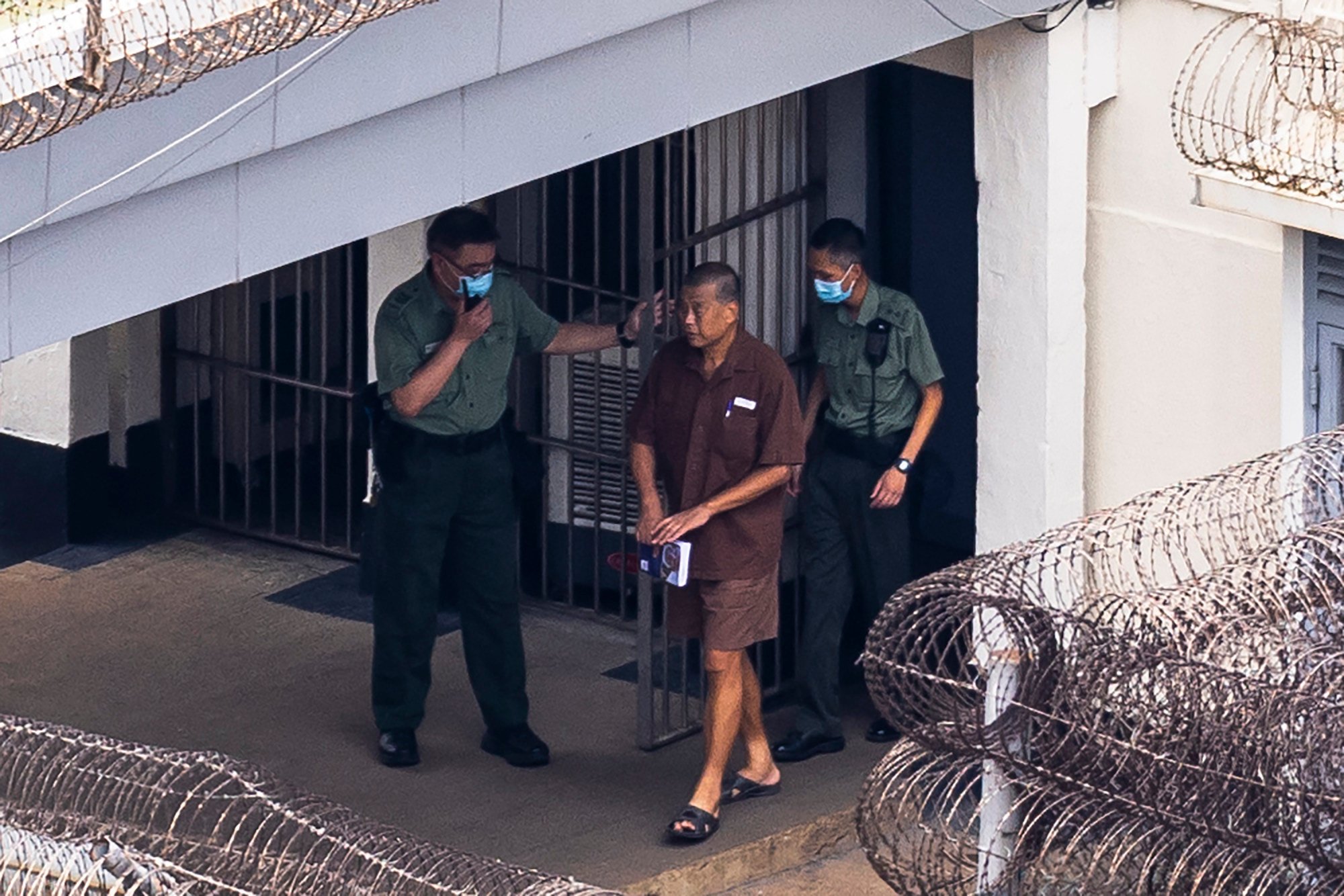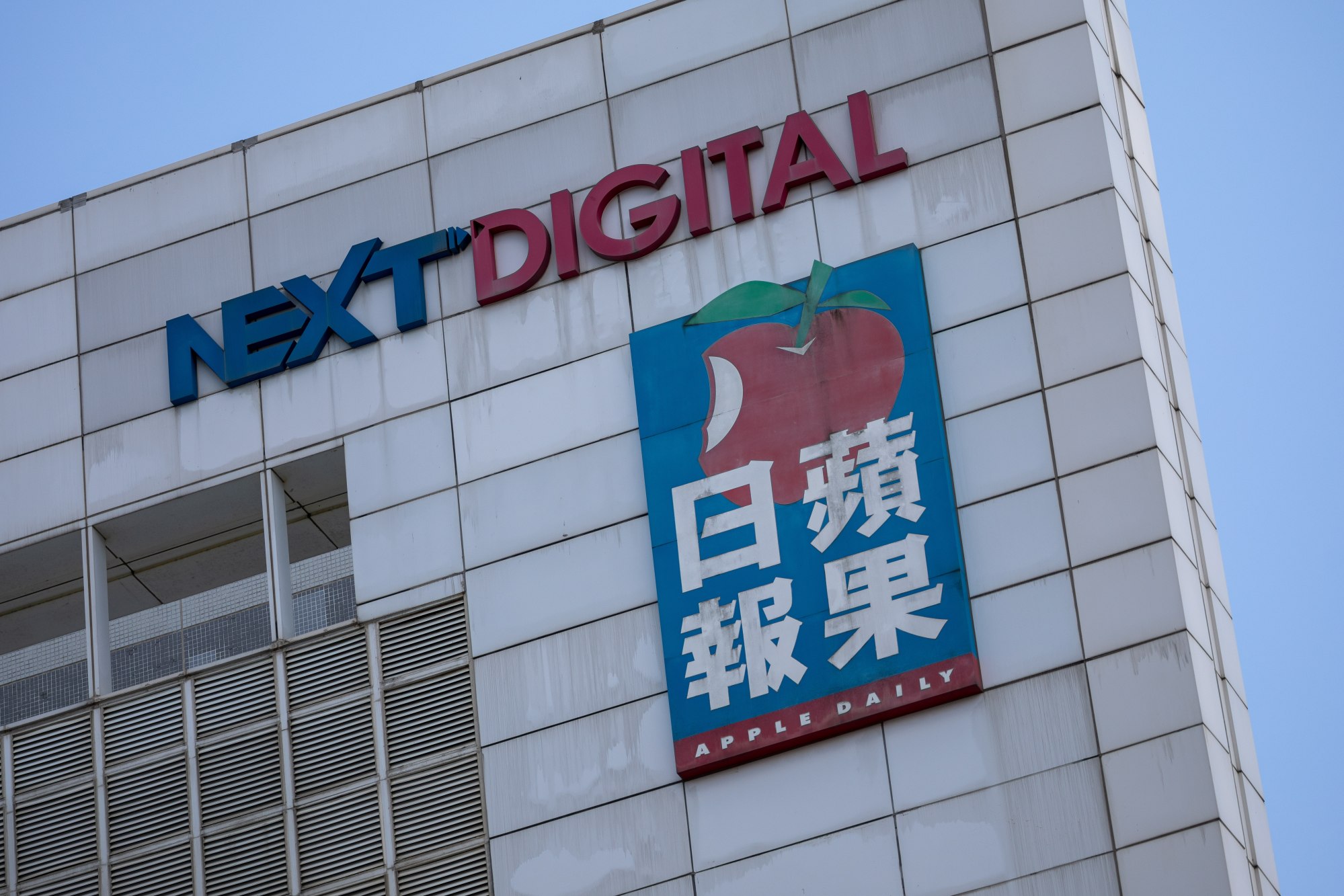
Stage set for Hong Kong media mogul Jimmy Lai’s marathon trial on national security charges
- After three postponements, 80-day trial before three-judge court is scheduled to start on December 18
- Former allies of Apple Daily founder are slated to testify for prosecution in case condemned by the West
There have been numerous international appeals for his release but his trial, postponed three times, is due to start on Monday, with Lai accused of conducting an anti-China campaign buoyed by foreign powers.

He will be tried at West Kowloon Court by a panel of three High Court judges approved by the city leader to oversee cases pertaining to the country’s interests. The marathon case is scheduled to take 80 days.
Justice minister Paul Lam Ting-kwok signed an order in July last year for the trial to proceed without a jury on grounds including “involvement of foreign factors” and a “real risk that the due administration of justice might be impaired”.
The trial, which also targets three Apple Daily-related companies, has been postponed three times since December 1 last year.
In related cases where Lai’s co-defendants pleaded guilty, it was said that he drummed up hostile activities against Hong Kong and mainland China by using his tabloid newspaper as a platform for anti-government propaganda, and funding international lobbying efforts to attract foreign sanctions.
Police patrols, sniffer dogs and X-ray checks at Hong Kong court for Lai trial
Prosecutors in those cases said Lai’s ultimate goal was to achieve chi bao, interpreted in court as a desire “to bring down the Chinese government by causing administrative and economic turmoil in China”.
The term comprises two Chinese characters – one for the derogatory “Shina”, a slur used mainly in wartime Japan against Chinese people, and the other for “explosion”.

His lawyers said prosecutors were no longer pursuing that charge.
During a bail hearing in December 2020, a High Court judge noted that Lai’s remarks in the original charge appeared to be “comments and criticisms rather than requests”.
But part of the evidence in that charge was used to support the conspiracy allegations related to Apple Daily, the Post found after comparing different versions of prosecutors’ court filings.
One example is the “Live Chat with Jimmy Lai” show hosted on Apple Daily’s website, where Lai allegedly instigated hatred towards Beijing and appealed for continued support for the newspaper’s “unlawful activities”.
Details of the show were highlighted in a prosecution summary used to indict six Apple Daily senior executives, who were convicted of conspiracy to collude with foreign forces upon their own confession in August last year.
Editor-in-chief Ryan Law Wai-kwong, executive editor-in-chief Lam Man-chung, publisher Cheung Kim-hung, associate publisher Chan Pui-man, and editorial writers Fung Wai-kong and Yeung Ching-kee, are awaiting sentencing behind bars. They have been remanded since their prosecution in 2021.
Cheung, Chan and Yeung are among six of Lai’s former allies who have agreed to testify for the prosecution at the tycoon’s trial.
Hong Kong judge orders Jimmy Lai to pay costs for two ‘unarguable’ legal challenges
The newspaper’s chief financial officer and chief operating officer Royston Chow Tat-kuen, who was not charged with a national security offence, is also expected to testify against his former boss as part of a non-prosecution agreement with the Department of Justice.

He was acquitted after being tried for criminal intimidation of the reporter, but his subsequent legal battles were less successful.
In December last year, after he completed his jail term, a separate District Court judge sentenced him to a further 69 months’ jail in the fraud case.
Hong Kong hits back as Catholic leaders attack ‘persecution’ of Jimmy Lai
The three judges overseeing Lai’s trial are Madam Justices Esther Toh Lye-ping and Susana D’Almada Remedios, and Mr Justice Alex Lee Wan-tang.
They noted that there had been threats by “some foreign elements” to impose sanctions on judicial officers at all levels who dealt with security law cases.
“Needless to say, the threat would have no effect whatsoever on judges’ adherence to their judicial oath,” they said in a 60-page judgment.
Lai had a brief taste of success when he persuaded the Court of Final Appeal to allow him to be represented by British King’s Counsel Timothy Owen in the collusion trial.

Apple Daily raised the ire of Beijing with its unrelenting criticism of local and central authorities. The newspaper closed in June 2021 after the authorities froze HK$18 million (US$2.3 million) worth of Lai’s assets.
Chinese embassy condemns UK’s ‘flagrant interference’ in Hong Kong affairs
Lai’s son, Sebastian Lai Sung-yan, has described his father’s case as a “show trial” and feared he could die in prison if the Western world did not do more to secure his freedom.
He met British Foreign Secretary David Cameron on December 12. While Cameron was “unable to make any immediate commitments”, the younger Lai said he was reassured to hear that his father’s case was “a priority for the UK government”.
The UK’s Foreign, Commonwealth and Development Office said in a social media post on the same day that it “opposes the national security law and will continue to stand by Jimmy Lai and the people of [Hong Kong]”.
International accolades paying tribute to Lai’s activism have added to the calls to free the tycoon.
Hong Kong court backs Jimmy Lai, 6 others in attempt to overturn convictions
But Beijing has so far refrained from stepping into the fray.
When prompted by Hong Kong leader Lee to determine foreign lawyers’ standing in national security cases, the NPC Standing Committee chose to leave the matter in the hands of local authorities.
In light of the wide attention the case has drawn, the judiciary has set aside 388 seats for members of the public to attend the trial.
Seventy spectators will observe proceedings from the main courtroom’s public gallery, while the rest will watch a live broadcast.

